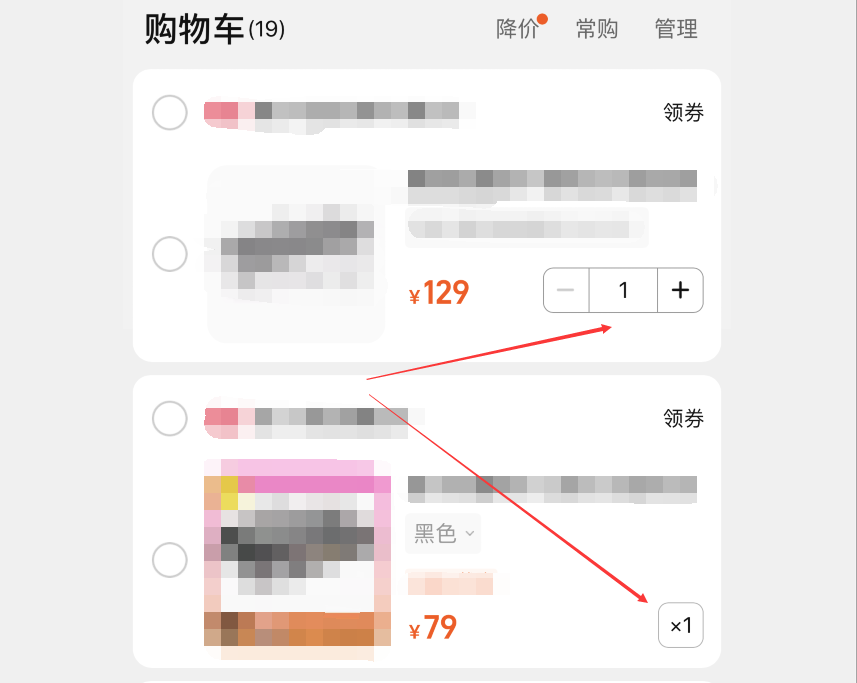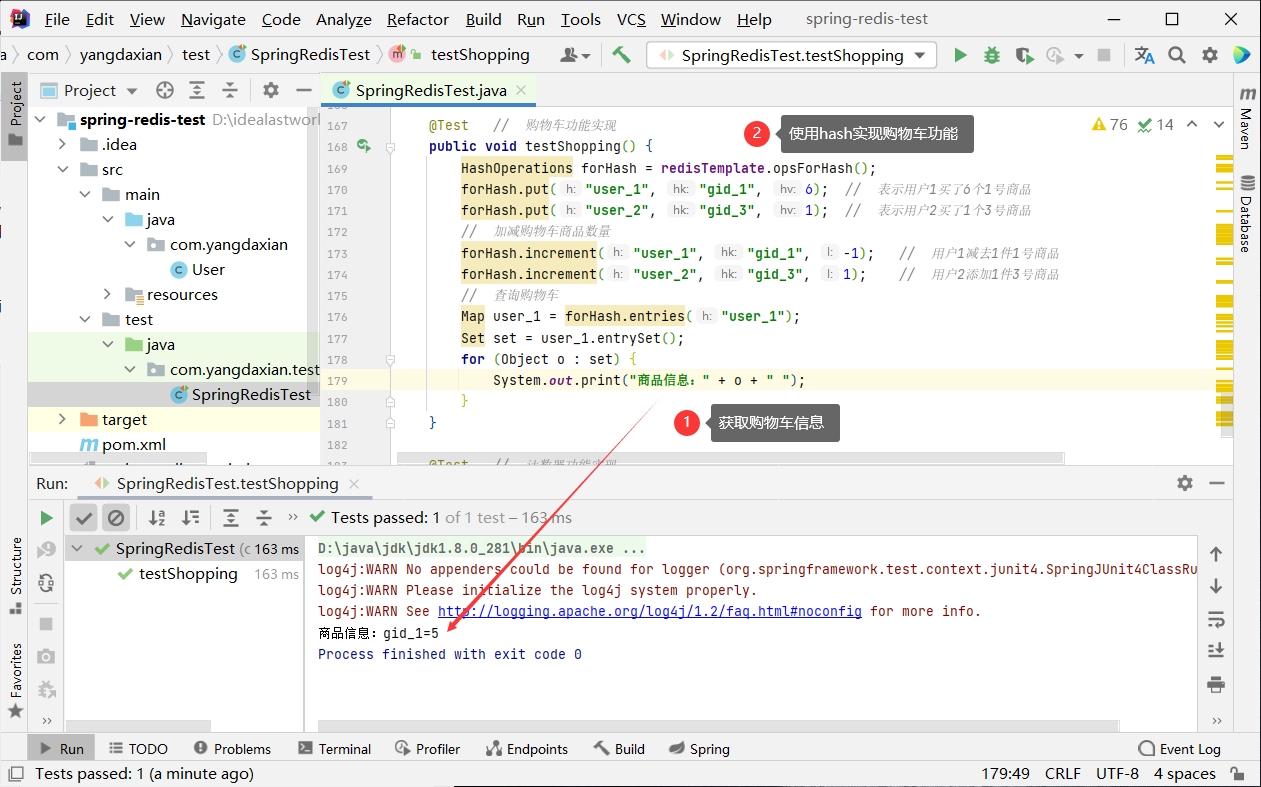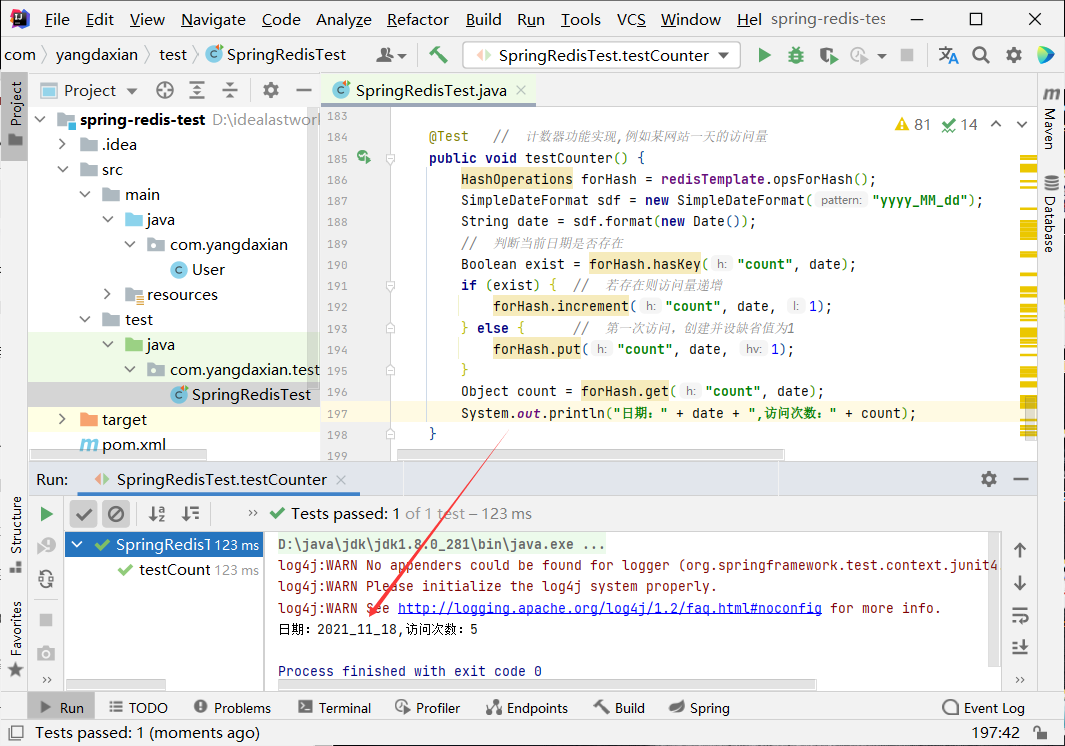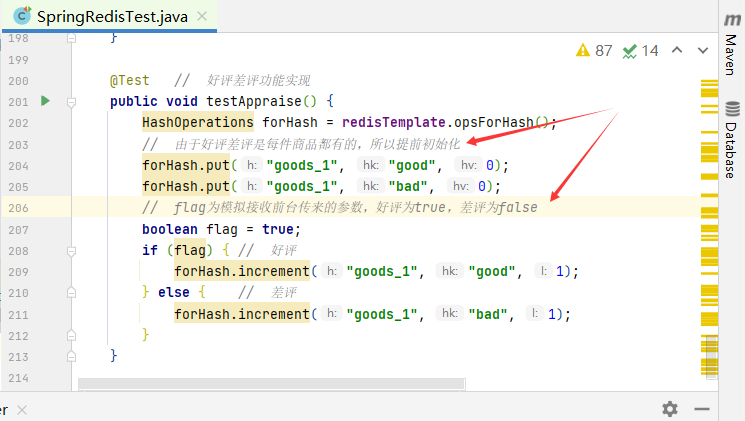Link to the above: (if you don't know much about Spring integration Redis, please refer to)
This article only does functional testing to show the code logic, and will be released later on how to use it in the project.

Shopping cart function
The definition of shopping cart is very simple: we can implement it through hash in Redis:
- If the user ID (or Cookie_id) of each user is used as the Key of the hash, the shopping cart of each user is a hash table, which can be used to store the product ID and the ordered quantity of products.
- When the number of goods in the shopping cart changes, we can update the shopping cart by using the method in Redis hash;
- If the quantity of a product ordered by the user is greater than 0, the program will add the ID of the product and the quantity of the product ordered by the user to the hash.
The effect is shown in the figure:

Corresponding test code:
@Test // Realization of shopping cart function
public void testShopping() {
HashOperations forHash = redisTemplate.opsForHash();
forHash.put("user_1", "gid_1", 6); // Indicates that user 1 bought 6 No. 1 items
forHash.put("user_2", "gid_3", 1); // Indicates that user 2 bought a No. 3 item
// Add or subtract the number of goods in the shopping cart
forHash.increment("user_1", "gid_1", -1); // User 1 minus 1 item 1
forHash.increment("user_2", "gid_3", 1); // User 2 added 1 item 3
// Query shopping cart
Map user_1 = forHash.entries("user_1");
Set set = user_1.entrySet();
for (Object o : set) {
System.out.print("Product information:" + o + " ");
}
}The realization of shopping cart function and code logic are roughly the same, and we need to use it flexibly in actual use.
Counter function
Redis hash table is also widely used as a counter. It is often used to record the number of visits to the website every day, month and year.
- On the first visit, we create a unique identity (property) and set the default value to 1.
- For each subsequent access, we only need to add 1 to the corresponding attribute. The code test is shown in the figure below:

@Test // Counter function implementation, such as the number of visits of a website in a day
public void testCounter() {
HashOperations forHash = redisTemplate.opsForHash();
SimpleDateFormat sdf = new SimpleDateFormat("yyyy_MM_dd");
String date = sdf.format(new Date());
// Judge whether the current date exists
Boolean exist = forHash.hasKey("count", date);
if (exist) { // If it exists, the number of visits increases
forHash.increment("count", date, 1);
} else { // For the first access, create and set the default value to 1
forHash.put("count", date, 1);
}
Object count = forHash.get("count", date);
System.out.println("Date:" + date + ",Number of visits:" + count);
}Many functions can also be evolved through the counter, such as the good / bad evaluation function of the shopping platform.
Good / bad comment function
It is also very simple to use Redis's hash to realize the functions of good and bad reviews of goods.
Since there are good and bad reviews for each product, it is initialized in advance. The code is shown in the figure:

flag is the parameter sent from the analog reception foreground. The positive comment is true and the negative comment is false.
@Test // Realization of positive and negative comment function
public void testAppraise() {
HashOperations forHash = redisTemplate.opsForHash();
// Since good reviews and bad reviews are common to every product, they are initialized in advance
forHash.put("goods_1", "good", 0);
forHash.put("goods_1", "bad", 0);
// flag is the parameter sent from the analog reception foreground. The positive comment is true and the negative comment is false
boolean flag = true;
if (flag) { // Praise
forHash.increment("goods_1", "good", 1);
} else { // negative comment
forHash.increment("goods_1", "bad", 1);
}
}This concludes the test of Redis's shopping cart, counter, good / bad rating and other functions.
Programming is very interesting. We can code all kinds of scenes in life. Flexible use can open the door to a new world. Welcome to study and discuss together~
Please indicate the source for reprint
If there is any mistake, please correct it
Thanks